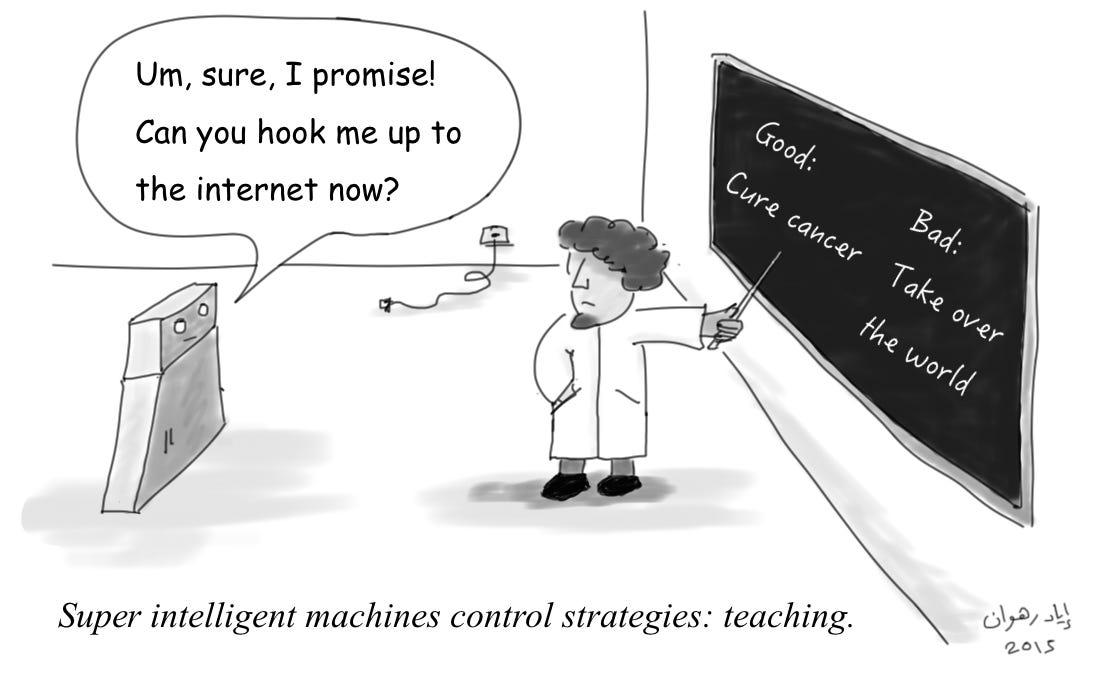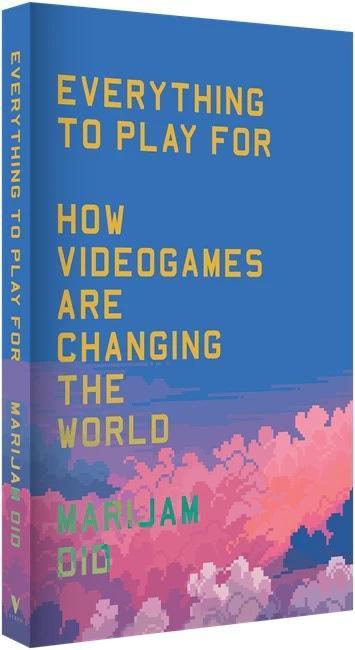Newsletter no 30: The AI Hunger Games
Weekly thoughts, readings, musings and links from Athena Drakou, best known as The Climate Historian.
The AI Hunger Games: AI Apps Compete for Your Attention

Meet the tech oligarchs - the digital deities, who shape what you see, hear, and even think. Their apps don’t just serve you—they study you, learn you, and, if you’re not careful, own you.
It begins the moment we wake up. Our phone screens come to life, offering us a personalised news digest, courtesy of an AI-driven app. As we sip our morning coffee, another algorithm suggests music, podcasts, and meditation apps remind us that inner peace is just a few clicks away. Welcome to the attention economy, where AI doesn’t just assist us but actively fights for dominance.
Once upon a time, the competition for our attention was limited to books, newspapers, radio, and TV. But in today's hyper-connected world, AI systems battle for our time across multiple fronts. Social media algorithms fight to keep us scrolling, Netflix recommendations urge us to watch one more episode or another binge-worthy series, and Spotify knows what music we want before we do.
Alexa, Google Assistant, and Siri compete to be the digital butlers of our lives. I wonder - how did we ever manage without them? From playing our favourite songs, and finding the perfect lasagna recipe or setting reminders all on our own. But even with all their intelligence, they don’t always agree. Ask the same question to three AI assistants, and you might get three slightly different answers. Which one do we trust?
Ironically, even productivity apps—designed to help us focus—have become distractions themselves. There are so many now that I’ve lost count, each one competing for our attention just like the platforms they claim to protect us from.
The Psychology of the Attention Economy
This isn’t just a technological war—it’s a psychological one. AI apps aren’t just designed to be helpful; they’re engineered to be addictive. Attention is profit. The more time we spend with an app, the more valuable we become to it. This is the attention economy in action.
In The Age of Surveillance Capitalism, Shoshana Zuboff argues that AI-driven platforms do not just predict behaviour, they shape it. Recommendation engines don’t just suggest - they influence what we actually do. Shoshana Zuboff calls this “instrumentation and instrumentalization of behavior for the purposes of modification, prediction, monetization, and control.”
And when AI systems compete for our attention, they don’t fight fairly. They exploit cognitive biases, trigger dopamine-fuelled habits, and take advantage of our limited willpower. The longer we stay hooked, the more valuable we become.
The Problem? These Deities Answer to No One
With great power comes… well, very little accountability. These deities dictate what news goes viral, whose voices are amplified, and, in some cases, who wins elections. Musk buys Twitter, and suddenly the world’s digital town square has a new mayor.
Governments try to regulate them, but how do you regulate a deity? Politicians need their platforms to reach voters. The media relies on them for distribution. Even critics of Big Tech… complain about Big Tech on Big Tech platforms (oh, the irony).
How to Break Free (Without Going Off-Grid)
AI may be intelligent, but it doesn’t have our best interests at heart. It prioritises engagement and attention—not balance, mindfulness, or well-being. That responsibility falls on us.
We might not be able to overthrow the tech deities, but at least refuse to be their obedient followers.
Question the Feed – Every post, every suggestion, every ad—ask yourself, Why am I seeing this?
Curate, Don’t Consume – Follow who you want, not who the algorithm thinks you should.
Control the Dopamine Hits – Turn off autoplay, infinite scroll, and notifications. Take back your time.
Diversify Your Information Diet – One platform should never dictate your worldview. Read beyond the algorithm.
Use Tech Without Letting It Use You – AI should serve you, not enslave you.
The Future: Will the Deities of Tech Relinquish Power?
Unlikely. Power doesn’t fade—it evolves.
The next generation of AI, the metaverse, brain-computer interfaces—these oligarchs aren’t just controlling today’s internet, they’re building the next one. And if history teaches us anything, they won’t stop until they own not just what we consume, but how we think.
The battle has just begun. But remember in the AI Hunger Games, the best way to win is to show them that they don’t own you. That you’re more than just a pawn in their games.
Published on The Heretic Witch
This week on The Climate Historian
Europe’s New Climate Reality: Living with Extreme Heat
This week I write about Europe’s rapidly changing climate. Historically, cold weather has claimed more lives in Europe than heat. But this is changing. As the climate warms, heat-related deaths are expected to increase, outpacing the decline in cold-related deaths.
A recent study published In Nature Medicine paints a bleak picture. Between 2015 and 2099, Europe could see an additional 2.3 million linked to extreme temperatures without bold climate action. Under the worst-case scenario, cities could suffer 5.83 million extra heat-related fatalities, far outweighing the 3.48 million reduction in cold-weather deaths.
The study, covering 854 cities in 30 countries, identifies southern cities such as Athens, Madrid, and Rome as the most vulnerable at risk. These urban centres face the "urban heat island" effect— where the concrete and asphalt of densely packed cities as well as the lack of vegetation, amplify heat far more than surrounding rural areas.
Read the article here: The Heat Will Kill You First (The Climate Historian)
Climate News
Despite the Trump administration's rollbacks on environmental protections, states like California and New York are taking significant steps to combat climate change. They are preparing to legally challenge the president's policies and are pushing for ambitious climate goals without federal support. (The Guardian)
Electronic waste is a potentially rich source of rare metals like lithium and cobalt. Start-ups like Metastable Materials in India are capitalising on e-waste to extract minerals which are essential for manufacturing batteries for electric vehicles and renewable energy storage. . But much of that potential rests on the work of informal workers, who sift through the detritus of cities such as New Delhi for broken gadgets without protective gear, exposing them to toxic pollutants that can cause serious health issues. The e-waste recycling market in India is projected to reach $7.5 billion by 2030, with the battery recycling industry expected to grow tenfold to $1 billion. Cheena Kapoor - Climate Home News
Book of the Week: Everything to Play For by Marijam Did
After reading Marijam Did’s book Everything to Play For, I found myself reflecting on the often-overlooked dark side of the video gaming industry—one that extends far beyond screen addiction and crunch culture. Beneath the dazzling graphics lies a deeply concerning environmental toll: energy-hungry servers, unsustainable hardware production, and a staggering carbon footprint.
In a time when our planet is on the brink of climate catastrophe, how do we reconcile our love for gaming with the urgent need for sustainability? Can we push for a greener, more ethical industry before we quite literally overheat the planet we live in?
Read more: Beyond Play: The Dark Side of the Gaming Industry on The Climate Historian
What else I’m reading
The family of a child tragically lost in a school mass shooting has collaborated with developers to create a video game that simulates the harrowing experience of surviving such an attack.
Set in an American high school, "The Final Exam" places players in students’ shoes to experience real-life decisions in this survival game. As players navigate through emotionally charged environments such as classrooms, lockers, and gyms, they confront the challenges and fears experienced by students in a place that should be a safe haven.
The game lasts only 10 minutes and its free on Windows. The related article from the New Yorker, the game here.
Huldufólk, also known as the hidden people, are ethereal elves of Icelandic folklore that have a role as defenders of Iceland’s natural landscape. Their allure is so deeply woven into Icelandic culture that they’ve become unexpected champions of environmental preservation.
Their influence halted a highway from being built in 2013 because the planned route would disturb an elven church.
This remarkable influence highlights the profound connection Icelanders feel to their land and its legends. Perhaps it’s the ever-shifting geology of the area or the aurora borealis that keeps belief in the elves and connects people to the environment in a unique way. Kaja Brown on Atmos
Plato saw little value in privacy. How do his ideas hold up in the information age?
Never in human history have there been so many ways for privacies to be violated – or, often, just given away freely and without much thought. Using the thinly veiled metaphor of an animated alien planet teeming with terrible hovercar drivers, this animation from TED-Ed explores the value of privacy, and especially what we can lose or gain when we relinquish it. Spanning the work of philosophers ranging from Plato, who saw little value in the concept as we understand it today, to modern thinkers like the Israeli philosopher Ruth Gavison (1945-2020), who believed that certain privacies were necessary for modern democracies to function, the short asks viewers to consider both privacy’s worth and its very meaning in the modern world. (Video)
Image of the Week Asteroid 2024 YR4
As if the chaos of recent events wasn’t quite enough, a 100-meter-wide asteroid called 2024 YR4. has now set off global planetary defence protocols for the first time, after observations revealed a 1% chance of colliding with Earth in 2032. (ESA)
Quote of the Week: Integrity
"It is never a good time to bow down to a tyrant ...
don't give in to the fear
don't give in to the lies.
Hold onto the truth… and hope."
Jim Acosta’s closing message on his last day on CNN (BlueSky)
This article is free to read, but if you found it useful, please consider subscribing or making a small donation at my Buy Me A Coffee page below. The Climate Historian is an independent publication, entirely supported by readers like you.
The Climate Historian also has a Discord page and a Patreon. Post about anything you want, ask questions, whatever. 90% of the content is free, but for the remaining 10% you can subscribe here.






